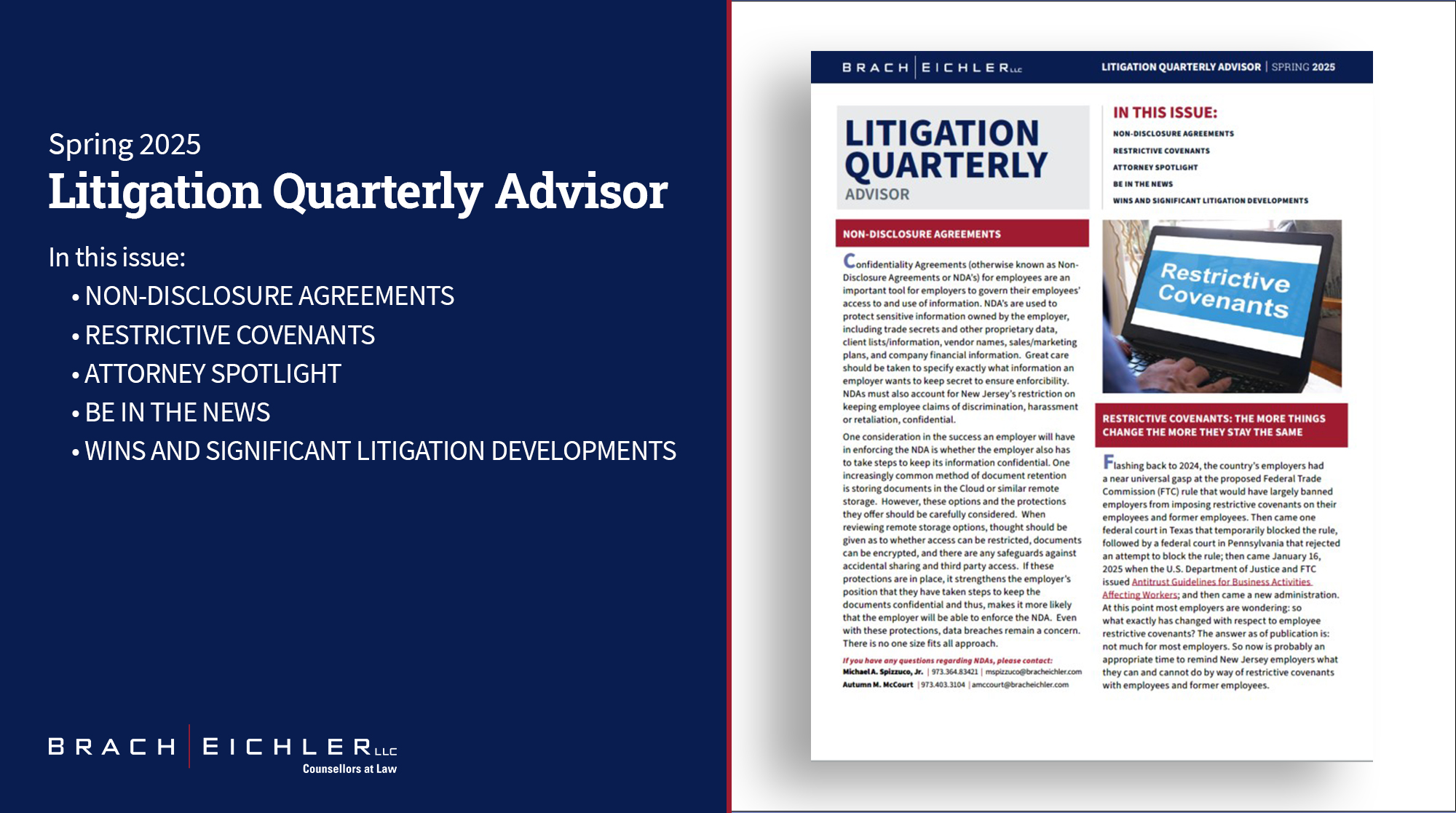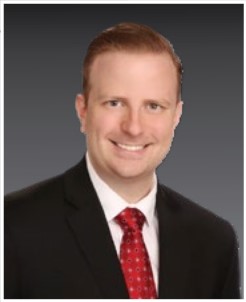
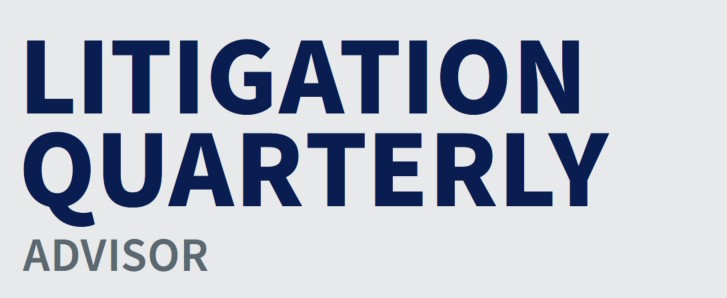
Confidentiality Agreements (otherwise known as Non-Disclosure Agreements or NDA’s) for employees are an important tool for employers to govern their employees’ access to and use of information. NDA’s are used to protect sensitive information owned by the employer, including trade secrets and other proprietary data, client lists/information, vendor names, sales/marketing plans, and company financial information. Great care should be taken to specify exactly what information an employer wants to keep secret to ensure enforcibility. NDAs must also account for New Jersey’s restriction on keeping employee claims of discrimination, harassment or retaliation, confidential.
One consideration in the success an employer will have in enforcing the NDA is whether the employer also has to take steps to keep its information confidential. One increasingly common method of document retention is storing documents in the Cloud or similar remote storage. However, these options and the protections they offer should be carefully considered. When reviewing remote storage options, thought should be given as to whether access can be restricted, documents can be encrypted, and there are any safeguards against accidental sharing and third party access. If these protections are in place, it strengthens the employer’s position that they have taken steps to keep the documents confidential and thus, makes it more likely that the employer will be able to enforce the NDA. Even with these protections, data breaches remain a concern. There is no one size fits all approach.
If you have any questions regarding NDAs, please contact:
Michael A. Spizzuco, Jr. | 973.364.8342 | mspizzuco@bracheichler.com
Autumn M. McCourt | 973.403.3104 | amccourt@bracheichler.com
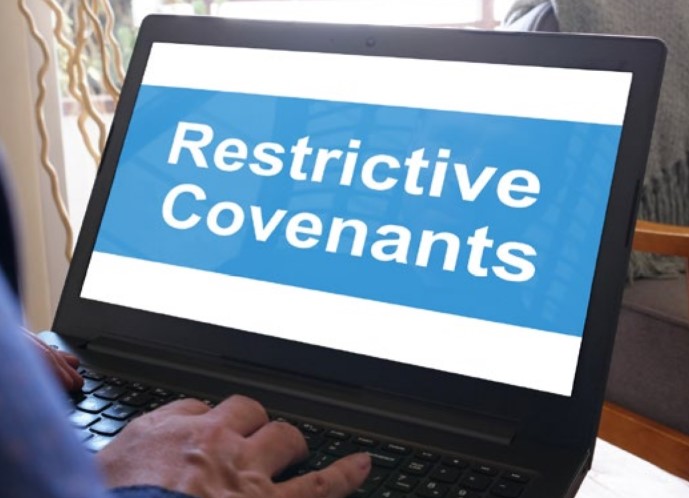
Flashing back to 2024, the country’s employers had a near universal gasp at the proposed Federal Trade Commission (FTC) rule that would have largely banned employers from imposing restrictive covenants on their employees and former employees. Then came one federal court in Texas that temporarily blocked the rule, followed by a federal court in Pennsylvania that rejected an attempt to block the rule; then came January 16, 2025 when the U.S. Department of Justice and FTC issued Antitrust Guidelines for Business Activities Affecting Workers; and then came a new administration. At this point most employers are wondering: so what exactly has changed with respect to employee restrictive covenants? The answer as of publication is: not much for most employers. So now is probably an appropriate time to remind New Jersey employers what they can and cannot do by way of restrictive covenants with employees and former employees.

As recent as 2019, in ADP, LLC v. Kusins, 460 N.J. Super. 368 (App. Div. 2019) and ADP, LLC v. Rafferty, 923 F.3d 113 (3d Cir. 2019), our New Jersey state and federal courts reiterated the long standing precedent known as the Solari/Whitmyer factors governing the enforceability of post-employment restrictive covenants. This test is similar to the test applied in New York and many other states that permit these restrictive covenants in the employer/employee setting.
Under the Solari/Whitmyer factors, a restrictive covenant is enforceable if it protects the legitimate business interests of the employer without imposing undue hardship on the employee, and is not injurious to the public. An employer’s legitimate business interests include the protection of trade secrets or proprietary/confidential information, as well as customer relationships. In some instances, investment or training of an employee can constitute a legitimate business interest. But an employer does not have a legitimate interest in simply preventing competition. Therefore, employers should ensure that their restrictive covenants protect only their legitimate business interests or otherwise risk a court finding the covenant to be unenforceable. If the employer can establish a legitimate business interest, the covenant should be enforceable provided that enforcement does not cause the employee an undue hardship or harm the public interest.
All three of these factors are routinely weighed by courts when confronted with a dispute between an employer and a former employee. The case law results are as diverse as the facts and circumstances of each case. Therefore, while these covenants are enforceable in New Jersey, New York, and many other states, each dispute requires a fact specific analysis and knowledge of how courts in each venue come out in each circumstance.
Please contact us if you would like more information on restrictive covenants:
Anthony M. Rainone | 973.364.8372 | arainone@bracheichler.com
Jalen Porter | 973.447.9652 | jporter@bracheichler.com
The Third Circuit recently upheld a whopping $7M+ award against a home healthcare company and its owner because the company had failed to pay employees for travel time to client homes, time during short breaks of twenty minutes or less, and overtime and because of its inadequate recordkeeping of time worked. Sec’y United States Dep’t of Lab. v. Nursing Home Care Mgmt. Inc. 2025 WL 351599 (3d Cir. Jan. 31, 2025). The case began when the U.S. Department of Labor (“USDOL”) conducted a fairly narrow audit of the business, identified some relatively trivial infractions, and then expanded the scope of its review.
This case is a powerful reminder of some very basic wage and hour rules.
Employers also to have be mindful of compliance with state wage and hour and workplace laws, which often vary from federal law. If the home healthcare company in this lawsuit had employed aides in New Jersey, for example, it also would have had to comply with the recently enacted New Jersey Domestic Workers’ Bill of Rights (“DWBR”). The DWBR requires employers to notify all domestic workers of their rights, and to provide employees who work more than five hours per month a written contract in English and their preferred language detailing their job duties, hourly and overtime wages, work schedule, pay method and frequency, benefits, breaks, paid holidays, paid or unpaid leave, modes of transportation and housing (if applicable), the term and duration of their contract, and any other agreed upon terms and conditions of employment. The DWBR prohibits these contracts from mandating arbitration and subjecting employees to restrictive covenants, including non-disclosure, non-competition, and non-disparagement agreements. The DWBR further requires employers to provide workers’ compensation insurance, maintain records of hours worked and the accrual and use of leave, and give notice prior to termination under certain
circumstances. For those employers who have paid a domestic worker $1,000.00 or more within the past year, there are additional registration, recordkeeping, and tax obligations.
Compliance is essential and can save your business and its owners significant legal and financial exposure.
For more information on your employer obligations under the state and federal wage and hour laws and the DWBR, please contact:
Jay Sabin | 917.596.8987 | jsabin@bracheichler.com
Ashley L. Matias | 973.364.8330 | amatias@bracheichler.com

Although the COVID pandemic is behind us, many employers are still permitting their employees to work from home. Whether employees work from home full time or only one day a week, companies need to implement written “Work From Home” policies for various reasons, including to protect its confidential information.
When people work from home, they may use unsecure Wi-Fi networks, forward information to their personal email address to use their home printer, leave confidential paperwork on a kitchen table, or attend
virtual meetings over third-party communication platforms with various people passing by that could hear every word spoken by all persons on the meeting. These concerns are mitigated when working in the office because companies can exercise control over these scenarios.
For more information on how to adopt, implement and enforce remote work policies, please contact:
Eric Magnelli | 973.403.3110 | emagnelli@bracheichler.com
In January 2025, the new administration issued several executive orders and directives aimed at curtailing DEI initiatives, including:

In response to the latter directive, the U.S. Department of Justice issued a Memorandum on February 5, 2025 to identify “potential civil compliance investigations” of certain organizations, particularly “publicly traded corporations, large non-profit corporations or associations, foundations with assets of 500 million dollars or more, State and local bar and medical associations, and institutions of higher education with endowments over 1 billion dollars.” The memo also directs the Civil Rights Division to “investigate, eliminate, and penalize illegal DEI and DEIA preferences, mandates, policies, programs, and activities in the private sector and in educational institutions that receive federal funds.” It specifically calls for identifying “the most egregious and discriminatory DEI and DEIA practitioners in each sector” and developing proposals for “up to nine potential civil compliance investigations” targeting certain organizations.
The EEOC has also responded to the Executive Orders with various actions, including publishing on March 19, 2025 a primer “What You Should Know About DEI-Related Discrimination at Work” and formerly querying twenty of the largest law firms in the United States about their DEI programs.
All employers have had to assess (among other things) whether they have a program that might be considered a DEI program, whether their program falls within the ambit of the Executive Orders, whether the Executive Orders are enforceable, and whether having a DEI program will make them likely targets of the U.S. Dep’t of Justice or the EEOC or of a plaintiff or class of plaintiffs alleging “reverse” discrimination.
For more information, contact:
Jay Sabin | 917.596.8987 | jsabin@bracheichler.com
Aladekemi Omoregie | 973.447.9678 | aomoregie@bracheichler.com
Under various local, state and federal laws employers are obligated to provide reasonable accommodations to disabled employees. The employee is not required to specifically state that they are requesting a “reasonable accommodation.” Rather, the employee need only let the employer know (verbally or in writing) that they need an adjustment or change at work for a reason related to a medical condition. The “interactive process” requires the employer and the disabled employee to engage in an open line of communication for the purpose of working together cooperatively to come up with an appropriate accommodation for the employee’s disability.

The purpose of the interactive process is to identify and evaluate the viability of potential workplace accommodations to enable the disabled employee to perform the functions of their job. Although the employer should consider in good faith any accommodations suggested by the employee or their healthcare provider, the interactive process does not require the employer to provide the specific accommodation requested by the employee. At the same time, the employer cannot unilaterally determine the accommodation without first engaging in the interactive process with the employee. The basic purpose of this collaborative dialogue is to allow employers and employees to share crucial information and work toward solutions that:
For more information, please contact:
Anthony M. Rainone | 973.364.8372 | arainone@bracheichler.com
Aladekemi Omoregie | 973.447.9678 | aomoregie@bracheichler.com
When it comes to responding to employee leave of absence requests, it is not enough for a business to simply rely upon their own internal policies and procedures. In many situations those internal policies and procedures simply do not accurately reflect the businesses’ actual obligations under the myriad of local, state and federal laws that grant employees the legal right to a leave of absence. Under some of these laws a business that has only a single employee could potentially be obligated to provide a leave of absence.
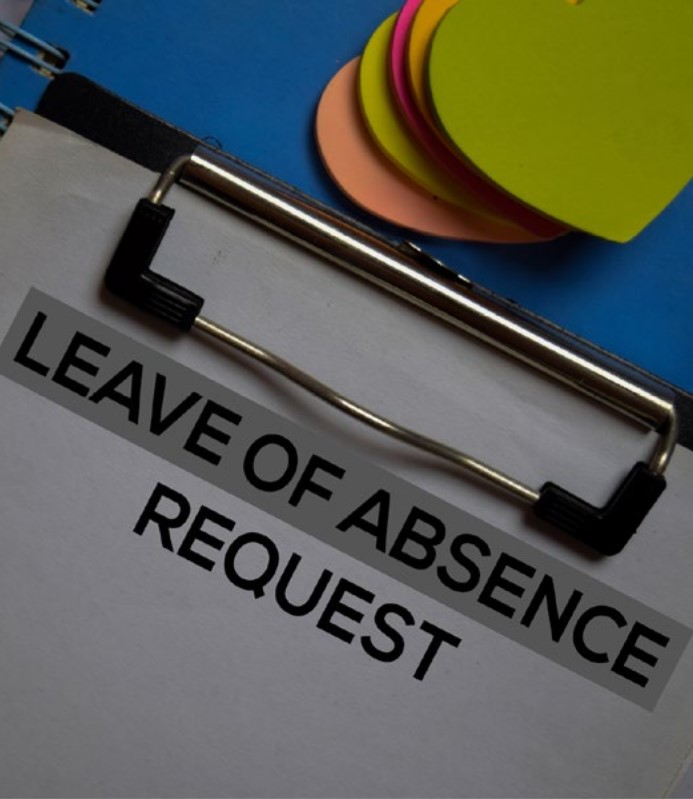
At the federal level, leave obligations may be imposed under Family and Medical Leave Act (“FMLA”) and the Americans with Disabilities Act (“ADA”). In New Jersey, additional leave obligations may be imposed under the New Jersey Family Leave Act (“NJFLA”) and the New Jersey Law Against Discrimination (“NJLAD”). Under these laws an employer’s obligations may be triggered as soon as the employer has reason to believe a leave may be needed (i.e., even if no formal leave request has been made).
For more information, please contact:
Matthew M. Collins | 973.403.3151 | mcollins@bracheichler.com
Ashley L. Matias | 973.364.8330 | amatias@bracheichler.com
Get to know the faces and stories of the people behind the articles in each issue. This month, we invite you to meet Member Michael A. Spizzuco, Jr. and Associate Ashley L. Matias.
MICHAEL A. SPIZZUCO, JR.
Michael’s primary focus is assisting clients in the construction, manufacturing and supply-chain management sectors, with an expansive litigation practice encompassing both New Jersey and New York state and federal courts. He represents construction companies of all sizes in various matters including construction defects, contractual disputes, mechanic/construction lien law claims, warranty claims, and public-works project disputes. Michael also reviews and drafts contracts for businesses, project owners, general contractors, subcontractors, and suppliers. Additionally, he serves his clients in defending Division of Consumer Affairs investigations. On the weekends, Michael looks forward to traveling with his wife, Marissa, and embarrassing himself as often as possible on the golf course.
ASHLEY L. MATIAS
Ashley L. Matias concentrates her practice on labor and employment. Ashley represents employers and individual employees in the private and public sector in matters involving state and federal claims of discrimination, harassment, retaliation, and whistleblowing as well as wage and hour disputes and unemployment benefits appeals. Ashley has appeared before state and federal agencies, including the Division on Civil Rights (“DCR”) and the Equal Employment Opportunity Commission (“EEOC”) and participated in mediations to amicably resolve employment matters. Ashley uses her litigation experience to counsel employers across numerous industries on state and federal employment law compliance, policy drafting and implementation, and enforceability of employment agreements, including restrictive covenants. Ashley takes a proactive approach to counsel clients on employee onboarding, training, discipline, leaves of absence, and separation. Ashley also conducts internal investigations of workplace complaints and counsels clients on effective strategies to respond to and remediate workplace issues. In her spare time, Ashley enjoys spending time with her family, cooking, and writing children’s books inspired by her son.

On March 4th, The New Jersey Law Journal published its “2025 New Partners Yearbook” which announces new partners from 2024. Brach Eichler’s litigation members Stan Barrett, Corey Dietz, Anthony Juliano, Thomas Kamvosoulis, and Michael Spizzuco were recognized.
On February 15, Susan Rubright’s client was highlighted on NJ.com for a recent court decision against Chester Township for failure to enforce stormwater regulations.
On February 10, the Honorable Lisa F. Chrystal, P.J.F.P (Ret.), who focuses her practice in the areas of Alternative Dispute Resolution (ADR), mediation and arbitration, was selected as a 2025 “Leader in Law” by NJBiz, in the Third Party Neutral: Mediator, arbitrator, conciliator, evaluator, etc. category! This program honors “legal professionals – lawyers and general counsels – whose dedication to their occupation and to their communities is outstanding.”
On February 10, The New Jersey Law Journal published Sean Smith’s article entitled “Sound the Alarm: Social Media, AI and the Systems that Will Create Sexual Predators” warning parents to be aware that the use of social media has and will continue to expose children to algorithms, artificial intelligence and readily available software which will result in civil lawsuits being filed against parents and other supervisors of the children for negligence, defamation and other privacy torts.
On January 9, Keith Roberts and Shannon Carroll issued a client alert entitled “Appellate Division Decides That IFPA Claims Are Not Subject to PIP Arbitration.”
WINS AND SIGNIFICANT BRACH EICHLER LITIGATION DEVELOPMENTS

Attorney Advertising: This publication is designed to provide Brach Eichler LLC clients and
contacts with information they can use to more effectively manage their businesses. The contents
of this publication are for informational purposes only. Neither this publication nor the lawyers who
authored it are rendering legal or other professional advice or opinions on specific facts or matters.
Brach Eichler LLC assumes no liability in connection with the use of this publication.

Stan Barrett | 973.364.5210 | sbarrettl@bracheichler.com
Shannon Carroll | 973.403.3126 | scarroll@bracheichler.com
Matthew M. Collins | 973.403.3151 | mcollins@bracheichler.com
Riza I. Dagli | 973.403.3103 | rdagli@bracheichler.com
Charles X. Gormally | 973.403.3111 | cgormally@bracheichler.com
Anthony M. Juliano | 973.403.3154 | ajuliano@bracheichler.com
Thomas Kamvosoulis | 973.403.3130 | tkamvosoulis@bracheichler.com
Bob Kasolas | 973.403.3139 | bkasolas@bracheichler.com
Andrew R. Macklin | 973.447.9670 | amacklin@bracheichler.com
Stuart J. Polkowitz | 973.403.3152 | spolkowitz@bracheichler.com
Anthony M. Rainone | 973.364.8372 | arainone@bracheichler.com
Richard B. Robins | 973.447.9663 | rrobins@bracheichler.com
Sean Alden Smith | 973.364.5216 | ssmith@bracheichler.com
Carl J. Soranno | 973.403.3127 | csoranno@bracheichler.com
Michael A. Spizzuco, Jr. | 973.364.8342 | mspizzuco@bracheichler.com
Frances B. Stella | 973.403.3149 | fstella@bracheichler.com
Rose Suriano | 973.403.3129 | rsuriano@bracheichler.com
Doris Cheung | 973.364.8309 | dcheung@bracheichler.com
Hon. Lisa F. Chrystal, P.J.F.P.(Ret.) | 973.364.8359 | lchrystal@bracheichler.com
Mark E. Critchley | 973.364.8339 | mcritchley@bracheichler.com
Paul J. DeMartino, Jr. | 973.364.5228 | pdemartino@bracheichler.com
Edward Ellersick | 973.364.5205 | eellersick@bracheichler.com
Theodore J. McEvoy | 973.364.5209 | tmcevoy@bracheichler.com
Michael A. Rienzi | 973.364.5226 | mrienzi@bracheichler.com
Thomas J. Spies | 973.364.5235 | tspies@bracheichler.com
Lauren Adornetto Woods | 973.364.5211 | lwoods@bracheichler.com
Robyn K. Lym, Editor | 973.403.3124 | rlym@bracheichler.com
Ashley Matias | 973.364.8330 | amatias@bracheichler.com
Neha C. Rao | 973.447.9668 | nrao@bracheichler.com
John Simeone | 973.447.9665 | jsimeone@bracheichler.com
Roseland, NJ | New York, NY | West Palm Beach, FL | www.bracheichler.com | 973.228.5700


